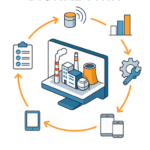LCA Software Showdown: A Deep Dive into LCA for Experts (GaBi), SimaPro, and OpenLCA
Life Cycle Assessment (LCA) has become an indispensable tool for evaluating the environmental footprint of products and processes. The choice of LCA software significantly impacts your analysis’s accuracy, efficiency, and depth. This blog post will explore three popular options: LCA for Experts (formerly “GaBi”), SimaPro, and OpenLCA.
LCA for Experts (GaBi) is the industry-leading and standard LCA software, but it is the most complex to learn; with its robust features and extensive databases, it is a powerful tool for in-depth LCA analysis. Its strong emphasis on data quality and transparency makes it a preferred choice for researchers, consultants, and large corporations. However, its complex interface and steep learning curve can be daunting for beginners.
Key Features:
- Comprehensive Database: Access various impact assessment methods (e.g., CML, ReCiPe) and detailed product and process data. These methods quantify and compare the potential environmental impacts of different products or processes.
- Advanced Modeling Capabilities: Model complex systems and analyze intricate interactions between different life cycle stages.
- Customization: Tailor the software to specific needs and research questions.
- Data Quality Assurance: Rigorous processes to ensure the reliability of input data.
- User Interface: GaBi is renowned for having the best graphical user interface among LCA software, making it the most user-friendly and advanced interface. This facilitates ease of use and enhances user experience, even for complex analyses.
- Comprehensive Analysis and Reporting in GaBi: GaBi supports various analysis tools, including sensitivity analysis, scenario analysis, parameter analysis, and the iReport feature to generate comprehensive LCA reports. This makes GaBi the most suitable software for examining various scenarios and prototypes. It is also considered the top software for technology development analysis. Although the iReport feature may not be as attractive or user-friendly as some might expect, it remains beneficial for detailed reporting. However, GaBi lacks integration with essential tools like Microsoft Excel, unlike its SimaPro. The export to Excel in GaBi is performed manually, which can be cumbersome for some users.
- Database Coverage: Life Cycle Inventory (LCI) databases (emission factors databases): The software includes a comprehensive professional database. It also offers 25+ additional databases available separately, including the ecoinvent database. This makes it the most extensive database software option (data availability), covering nearly every industry related to various businesses.
Best For:
- Enterprises and Big Projects: Best for big companies and projects with complex supply chains and processes.
- For Professionals: Best for LCA Experts and professionals who require advanced modeling capabilities and customization options.
- Consultants and large corporations need to conduct detailed and rigorous LCAs.
- Researchers and academics require advanced modeling capabilities and customization options.
SimaPro strikes a balance between user-friendliness and advanced features. Its intuitive interface and extensive database suit various users, from SMEs to large corporations. While it may not offer the same level of customization as GaBi, it provides a solid foundation for conducting comprehensive LCAs.
Key Features:
- User-Friendly Interface: Easy-to-navigate interface for efficient workflow.
- Extensive Database: Access to a broad product and process data range.
- Integration with Other Tools: Seamless integration with other software (e.g., Excel, Word) for streamlined data exchange.
- Data Quality Assurance: Robust processes to ensure data accuracy and reliability.
Best For:
- Small and medium-sized enterprises (SMEs) need a user-friendly and efficient LCA tool.
- Corporations that require a balance of user-friendliness and advanced features.
- Students and educators need a versatile teaching tool for LCA.
As an open-source software, OpenLCA offers a flexible and cost-effective solution for LCA. Its active community and customizable platform empower users to tailor the software to their requirements. While it may require more technical expertise for setup and customization, it provides a powerful tool for beginners and advanced users.
Key Features:
- Open-Source: Free to use and modify.
- Customizable Platform: Adapt the software to specific needs and research questions.
- Community Support: Benefit from a large, active community of users and developers.
- Wide Range of Impact Assessment Methods: Access various impact assessment methods and databases.
Best For:
- Researchers and developers who want to customize the software to their needs.
- Organizations with limited budgets seek a cost-effective LCA solution.
- Individuals and small teams who want to learn and experiment with LCA.
- Students: Students seeking a versatile tool for teaching and learning LCA.
Choosing the Right Software
The optimal choice of LCA software depends on several factors, including:
- Database Coverage: Ensure the software’s database aligns with your needs.
- Impact Assessment Methods: Select software that supports your preferred impact assessment methods.
- User Interface: A user-friendly interface can significantly improve efficiency.
- Customization Options: Consider the level of customization required for your analysis.
- Cost: Evaluate the licensing fees and potential maintenance costs.
- Community Support: A strong community can provide valuable assistance and resources.
You can select the LCA software that best suits your organization’s goals by carefully considering these factors. This choice will empower you to conduct accurate and insightful life cycle assessments and give you a sense of control and confidence in your work.
Additional Considerations
- Data Quality: Prioritize software with robust data quality assurance processes.
- Transparency: Ensure transparency in data sources and calculation methods for credible results.
- Sensitivity Analysis: Utilize sensitivity analysis to assess uncertainty in your findings.
- Life Cycle Inventory (LCI) Databases: A comprehensive LCI database is essential for accurate LCA results.
By understanding the strengths and weaknesses of each software, you can make an informed decision. This decision will enable you to conduct high-quality LCA studies that contribute significantly to sustainable practices and informed decision-making. In this way, you become an important and influential part of the process.
Learn and Master LCA Software with DEISO
DEISO offers comprehensive training programs for all the major Life Cycle Assessment (LCA) software, including GaBi, SimaPro, and OpenLCA. We provide a range of training plans tailored to different levels of expertise and specific needs.
You can compare the available plans and choose the one that best suits you, allowing you to start mastering these powerful tools today. Whether you’re a beginner in LCA software or looking to deepen your knowledge, our training programs are designed to support your professional development.
Additionally, we offer customized training plans to meet the unique requirements of our clients. Please get in touch with us if you have any questions about our training options or would like to discuss your specific needs. Reach out today to become proficient in GaBi, SimaPro, or OpenLCA and enhance your role in sustainable product development.
LCA Software Training Programs
Share this:
- Click to email a link to a friend (Opens in new window) Email
- Click to share on LinkedIn (Opens in new window) LinkedIn
- Click to share on X (Opens in new window) X
- Click to share on Facebook (Opens in new window) Facebook
- Click to share on WhatsApp (Opens in new window) WhatsApp
- Click to share on Reddit (Opens in new window) Reddit
- Click to print (Opens in new window) Print
- More
- Click to share on Tumblr (Opens in new window) Tumblr
- Click to share on Threads (Opens in new window) Threads
- Click to share on Pinterest (Opens in new window) Pinterest
- Click to share on Pocket (Opens in new window) Pocket
- Click to share on Telegram (Opens in new window) Telegram
- Click to share on X (Opens in new window) X










